Congratulations on your new tattoo! Getting a tattoo is a big decision, and it’s important to make sure you take care of it properly so it heals correctly and looks great for years to come. In this blog post, we will discuss the complete tattoo aftercare guide. We’ll cover everything from how to clean your new ink to how to prevent infection. By following these steps, you can ensure that your new tattoo looks amazing for years to come!
Why Is Aftercare Important?
Aftercare is important for several reasons. First, it helps to prevent infection. Second, it helps the tattoo heal properly and evenly. Third, it helps to preserve the ink and color of the tattoo. Fourth, proper aftercare can help to reduce the risk of complications such as keloids or scars.
How To Care For Your Tattoo?
Cover It Up
You will need to keep your tattoo clean and covered for the first few days following your tattooing session. Your artist should apply a thin layer of petroleum jelly and a bandage before you leave the shop.
Wash It Gently
For the first few days, wash your tattoo gently with warm water and antibacterial soap.
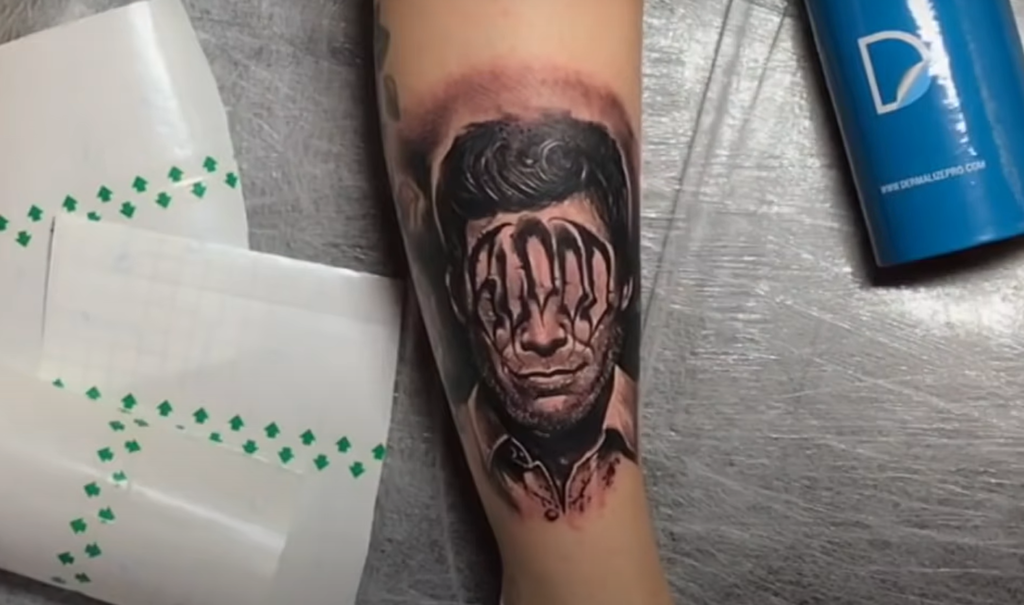
Apply more petroleum jelly and replace the bandage if it gets wet.
Don’t Soak It
Avoid soaking your tattoo in water for long periods of time. This means no baths, hot tubs, swimming pools, lakes, or oceans for at least two weeks!
Moisturize It
Once your tattoo starts to heal, you can begin applying lotion. Be sure to use a fragrance-free, hypoallergenic product. Apply lotion several times a day for the first week or two, then as needed thereafter. [1]
Protect It From The Sun
Your tattoo will be especially sensitive to sunlight during the healing process. Be sure to apply sunscreen (SPF 30 or higher) whenever you’re exposed to direct sunlight, even if it’s just for a short period of time.
Watch For Signs Of Infection
If you see signs of infection, such as redness, swelling, or pus, contact your doctor immediately. Also let your tattoo artist know right away so they can advise you on how to proceed.
Day-By-Day Aftercare
Days 1-3
- Keep the tattoo clean and dry.
- Apply a thin layer of tattoo aftercare ointment or lotion.
- Gently pat the tattoo dry with a clean paper towel if it gets wet.
- Do not pick or scratch at the tattoo.
- Avoid direct sunlight or tanning beds.
- Wear loose, comfortable clothing over the tattoo.
Days 3-5
The tattoo will start to peel and flake during days three to five. It is important to keep the area clean and moisturized during this time. Avoid picking at the scabs, as this can cause scarring. Once the tattoo starts to peel, it will continue to do so for up to two weeks. After that, the tattoo will start to fade and become lighter in color. It is normal for the tattooed area to feel itchy as it heals. You may also see some swelling and bruising around the tattoo site. These side effects should subside within a week or two. If you have any concerns about your healing tattoo, contact your artist or doctor.
Days 5+
Your tattoo will continue to ooze clear or yellow fluid and shed skin for the first few days. Keep washing it and applying lotion. Avoid picking at your scabs, as this can cause infection or scarring. By day five, you should start to see your tattoo begin to heal. The color may appear duller than when it was first done, and that’s normal. It will take a few weeks for the color to fully heal and settle in. Once your tattoo starts healing, you can slowly resume your normal activities.
Your tattoo is now more susceptible to sun damage since the ink is sitting closer to the surface of your skin. Reapply sunscreen throughout the day, especially if you’re going to be outside for an extended period of time.Coconut Oil And Tattoo Aftercare
Coconut oil has become a popular choice for tattoo aftercare. It is said to help keep the tattoo area moist, which can speed up the healing process. Coconut oil is also thought to have antibacterial and anti-inflammatory properties, which may help to prevent infection.
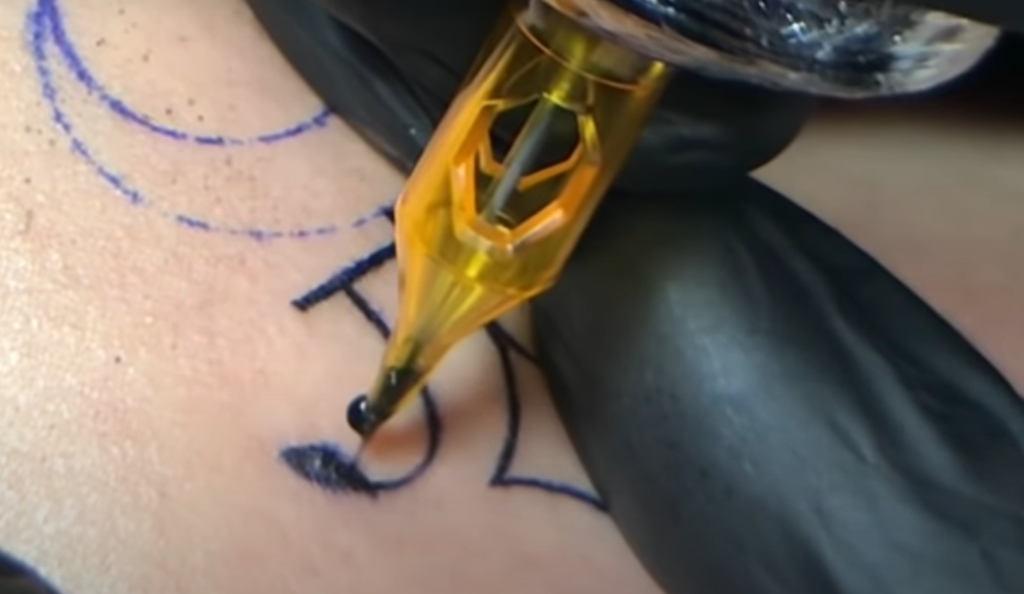
To use coconut oil on your tattoo, simply apply it to the area several times a day. You can find coconut oil at most health food stores. Be sure to look for an organic, virgin variety that is free of chemicals and fragrances.
If you are concerned about using coconut oil on your tattoo, talk to your artist or dermatologist first. They will be able to advise you on whether or not it is appropriate for your particular situation. [2]
Potential Side Effects And Complications Of Tattoos
Infection
It is the most common complication associated with tattooing. The risk of infection can be minimized by ensuring that your tattoo artist uses sterile equipment and practices good hygiene.
Allergic Reaction
If you have never had a tattoo before, you may be wondering if it is normal to experience an allergic reaction. Unfortunately, there is no sure way to know if you will have an allergic reaction until you get your tattoo. If you do experience an allergic reaction, the most common symptom is a rash at the site of the tattoo. Other symptoms may include itching, swelling, and redness.
Scarring
It is a possibility with any wound, and tattoos are no different. A good rule of thumb is that if your tattoo was done by a professional using sterile equipment and proper aftercare was followed, the risk of scarring is minimal. However, there are still some things you can do to further reduce the chances of your tattoo developing scars. One simple measure is to keep your tattoo clean and dry. This means avoiding swimming or soaking in tubs until the tattoo has healed completely. You should also avoid picking at or scratching the tattoo, as this can lead to infection and scarring. If you notice any redness, swelling, or discharge coming from your tattoo, be sure to consult a doctor right away as this could be indicative of an infection. [3]
When To See Your Doctor
If you experience any of the following complications, it’s important to see your doctor right away:
- You have a fever over 101°F.
- Your tattoo is oozing pus or fluid.
- The area around your tattoo is hot to the touch.
- You notice red streaks radiating out from your tattoo.
- Your skin around the tattoo feels tight and uncomfortable.
These could be signs of infection, so it’s best to get them checked out by a professional. In most cases, however, you can treat milder symptoms at home with over-the-counter medication like ibuprofen or acetaminophen.
What Should I Do If My Tattoo Isn’t Healing Fast?
If your tattoo isn’t healing as quickly as you think it should, there are a few things you can do to help speed up the process. First, make sure that you’re cleansing the area with a mild soap and warm water at least twice a day. In order to keep the area moist and protected, you should also apply a thin layer of aftercare ointment or lotion. If you notice any redness, swelling, or other irritation, contact your tattoo artist or dermatologist right away. With proper care, your tattoo will heal in no time!
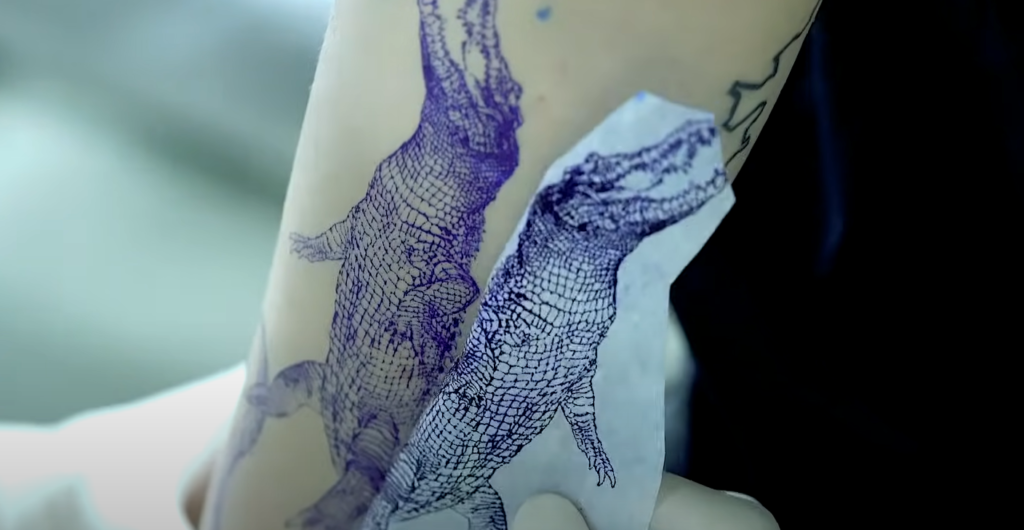
Tattoo aftercare is important for keeping your new ink looking its best. By following these simple tips, you’ll ensure that your tattoo heals quickly and safely.
How To Shower With A New Tattoo?
The first few days after getting a tattoo are particularly important in terms of caring for your new ink. During this time, it’s important to keep your tattoo clean and dry to prevent infection and promote healing.
One of the most common questions we get asked is how to shower with a new tattoo. Here are a few tips to help you properly care for your tattoo during this crucial time:
- Avoid using harsh soaps or scrubbing your tattoo. Instead, opt for a gentle, fragrance-free cleanser like Cetaphil or Eucerin. Gently wash the area with warm water and pat dry.
- Don’t soak your tattoo in water for long periods of time. This includes taking long showers, baths, or swimming.
- Apply a thin layer of tattoo aftercare ointment or lotion to keep the area moist and promote healing. We recommend using a product like Aquaphor Healing Ointment or Lubriderm Daily Moisture Lotion.
- Be sure to pat your tattoo dry instead of rubbing it when you get out of the shower. Gently apply your aftercare ointment and then let your tattoo air dry for a few minutes before putting on clean clothes. [4]
Tattoo Aftercare Products
There are a few different products you’ll need to properly care for your new tattoo: antibacterial soap, unscented lotion, and petroleum jelly. You’ll also need some sort of bandage or wrap to keep the tattoo clean and protected while it heals. Talk to your artist about what they recommend before you leave the shop.
Long-Term Tattoo Aftercare Tips
Keep It Clean
The most important aspect of long-term tattoo aftercare is to maintain your tattoo clean. Your body will naturally try to heal your tattoo by forming a scab, but if the area around your tattoo stays too moist, bacteria can cause an infection. To prevent this, gently wash your tattoo with soap and water two to three times a day during the healing process. After that, you should continue washing it once a day for the rest of your life.
Use Sunscreen
You might not think you need to worry about sunscreen on covered skin, but even tattoos that are fully healed can fade in the sun.
Don’t Pick or Scratch
As tempting as it might be, resist the urge to pick or scratch your tattoo, even if it starts to itch. This can damage the tattoo and cause it to heal improperly, leading to a faded or blurry design.
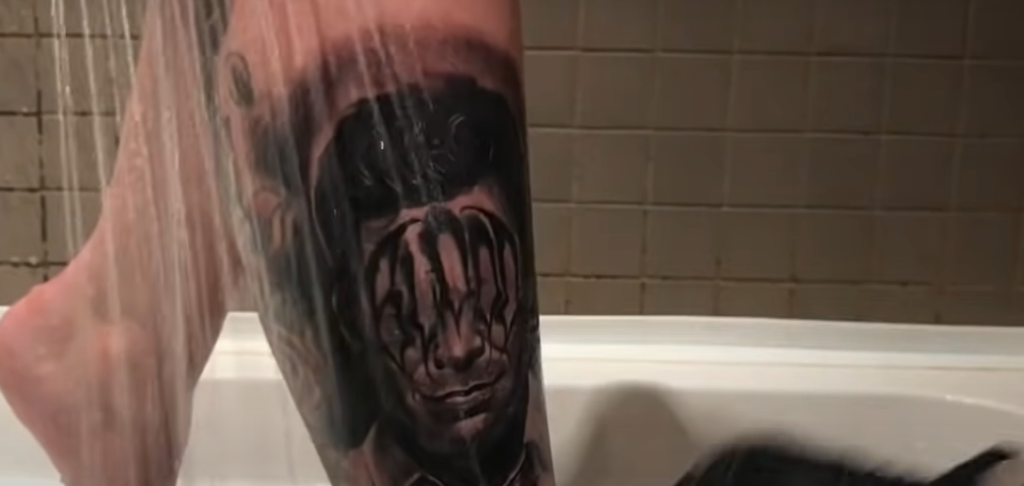
If your tattoo does start to itch, try applying a hypoallergenic lotion or cream to hydrate the area and help relieve the discomfort.
Visit Your Tattoo Artist for Touch-Ups
Even if you take good care of your tattoo, it’s still going to fade over time. To keep your ink looking sharp, schedule a touch-up with your tattoo artist every few years. This will help fill in any areas that have started to fade and give your tattoo a fresh, vibrant appearance.
Stay Hydrated
Drinking plenty of water is important for overall health, but it’s also crucial for maintaining the health of your skin—and that includes your tattoo. Staying hydrated helps keep your skin soft and supple, which prevents the formation of unsightly wrinkles and speeds up the healing process. Aim to drink eight glasses of water a day.
Avoid Excess Weight Gain Or Loss
Your tattoo is an investment, so you’ll want to take care of your skin to prevent it from stretching or sagging. If you gain or lose a significant amount of weight, it can cause your tattoo to distort, so try to maintain a stable weight.
Quit Smoking
Smoking is terrible for your health, and it can also have a negative impact on your tattoo. The chemicals in cigarettes can cause your tattoo to fade prematurely, and the act of smoking itself can irritate the healing skin and delay the healing process. If you smoke, now is the time to quit—for both your health and your ink. [5]
Is Aftercare Expensive?
The good news is that aftercare isn’t expensive. In fact, most of the things you need to do to care for your tattoo (like washing it and applying sunscreen) are probably already part of your daily routine. The only additional cost you might incur is for touch-ups or lotions/creams if your tattoo starts to itch during the healing process. Doing all of these things will help you enjoy your tattoo for many years to come.
How to Decide Whether Tattoo Is A Good Idea?
There are a few things you should consider before getting tattooed. Is your skin type prone to keloids? Do you have an allergy to any of the inks? Are you on blood thinners or other medication that might affect how your skin heals? These are just a few questions you should ask yourself before making the decision to get inked.
If you’ve decided that tattooing is right for you, congratulations! Your next step is to choose an experienced and reputable artist. Research their work online, and make sure they have a clean and sterile environment.
How To Properly Prepare for a Tattoo?
The first thing you need to do is find a reputable artist. This is the most important step in getting a tattoo. Once you’ve found an artist, schedule a consultation. During the consultation, your artist will ask you questions about your desired tattoo, such as placement, size, and color scheme. They will also give you a quote for the tattoo. After the consultation, if you’re still set on getting the tattoo, be sure to schedule an appointment with your artist.
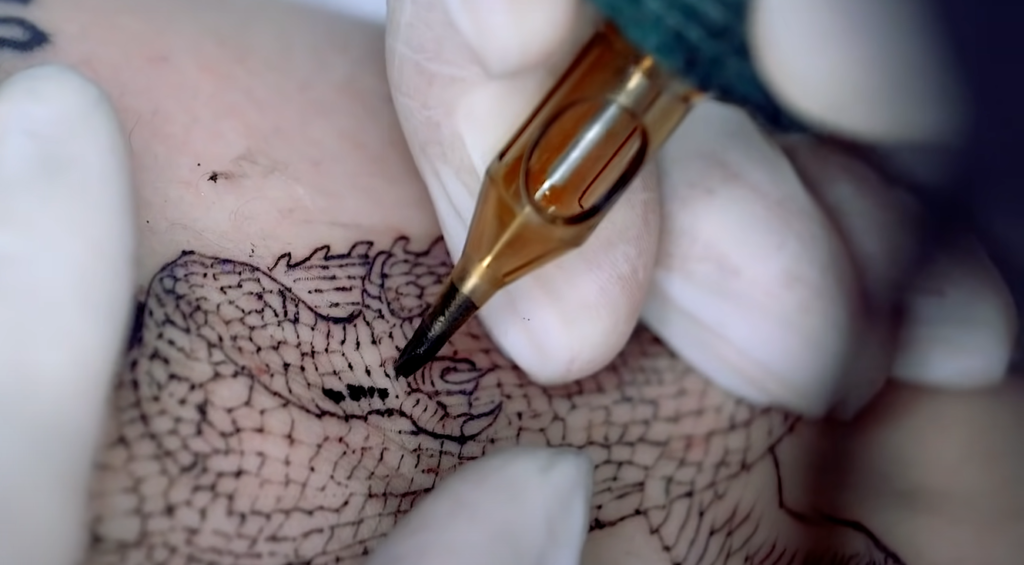
When it comes time for your tattoo appointment, there are a few things you need to do to prepare. First, make sure you eat something beforehand so that your blood sugar levels don’t drop during the tattooing process. It’s also important to avoid drinking alcohol before your tattoo, as it can thin your blood and make you bleed more during the tattooing process. Finally, be sure to wear loose-fitting clothing so that the artist can easily access the area they’ll be tattooing. [6]
FAQ
Do and don’ts after tattoo?
Do:
- Wash your hands before touching or cleaning your tattoo.
- Gently clean the tattoo with soap and water a few times a day.
- Apply a thin layer of fragrance-free lotion to keep the tattoo moisturized.
- Avoid direct sunlight and tanning beds for at least two weeks.
Don’t:
- Don’t soak the tattoo in water for long periods of time, such as taking baths or swimming.
- Don’t pick or scratch at the tattoo, as this can cause infection or damage the design.
- Avoid using products that contain alcohol, as this can dry out the skin and irritate the tattoo.
Should I keep my tattoo wrapped for 5 days?
Yes, you should keep your tattoo wrapped for at least five days. This will help to protect your tattoo from infection and will also keep the area hydrated. After the initial five days, you can remove the wrap and begin washing your tattoo with a mild soap and water. Gently pat the area dry after washing. Apply a thin layer of lotion to keep your tattoo moist but not oily. Repeat this process twice a day for the next two weeks. After two weeks, you can start using a heavier moisturizer on your tattoo if needed. Be sure to continue cleansing your tattoo regularly and avoid exposing it to direct sunlight or excessive amounts of heat.
Should I let my tattoo breathe?
There’s a lot of debate on whether or not you should let your tattoo “breathe.” On one hand, some say that it helps the tattoo heal faster; on the other, some say it doesn’t make a difference. Ultimately, it’s up to you. If you feel more comfortable keeping your tattoo covered, then go for it. If you want to let it breathe, that’s fine too. Just make sure you’re cleansing the area regularly (we’ll get into that more later).
How can I prepare myself mentally and physically for a tattoo?
You should always consult with your artist beforehand to get their professional opinion on how to best take care of your new ink. After you have received your tattoo, it is important to keep the area clean and dry. You should also avoid exposing the area to direct sunlight or extreme heat.
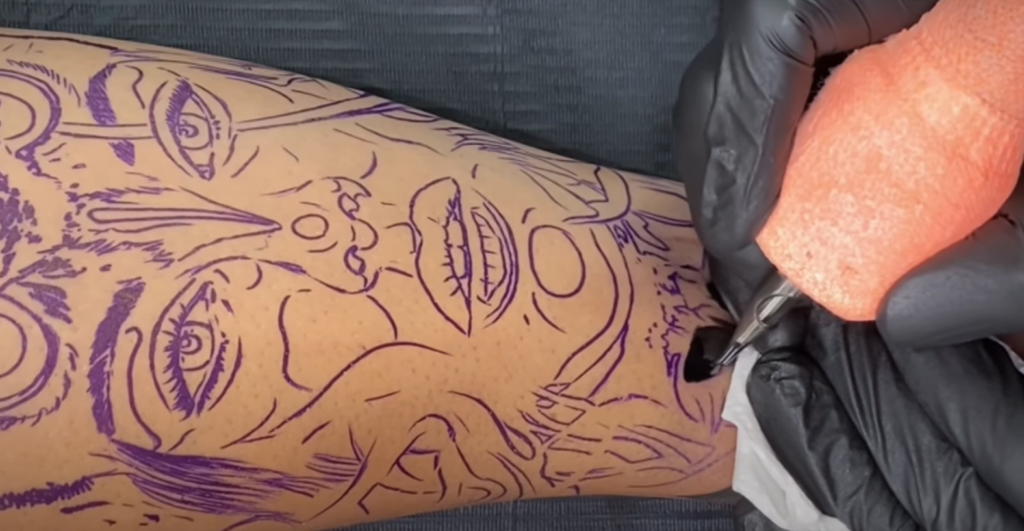
If you experience any redness, swelling, or other irritation, be sure to contact your artist or a medical professional immediately. Tattoo aftercare is vital to maintaining the health of your new tattoo and ensuring that it looks its best for years to come!
Does it hurt to get a tattoo?
This is a common question that people ask before they get inked for the first time. The answer is that everyone experiences pain differently, so there is no definite answer. However, most people report feeling a sharp prickling sensation as the needles penetrate the skin. Some people find this sensation more tolerable than others. If you are concerned about pain, you can talk to your tattoo artist about ways to minimize it.
How often should I clean my tattoo?
You should clean your tattoo at least twice a day, using a mild soap and lukewarm water. Avoid hot water, as this can dry out your skin and irritate the tattoo. Gently clean the area, pat dry, and apply a thin layer of ointment.
Should I use lotion on my tattoo?
Lotion is fine to use on your tattoo, but avoid using it too often. Once or twice a day should be plenty. If you find that your tattoo is drying out, you can increase the frequency to three or four times a day. Just make sure you’re not using an irritating product.
What about sunblock?
You’ll definitely want to use sunblock on your new tattoo, especially if it’s in a visible spot. A good rule of thumb is to use SPF 30 or higher, and reapply every two hours (or more often if you’re swimming or sweating).And there you have it! Just follow these simple tips and your tattoo will heal up beautifully.
What cream is best for tattoo aftercare?
There are a few different options when it comes to tattoo aftercare creams, but we recommend using a product that is specifically designed for tattoos. A good tattoo aftercare cream will help to keep your tattoo moisturized and protected from the environment. We suggest using a tattoo aftercare cream twice daily, once in the morning and once at night. Be sure to apply a thin layer of aftercare cream over the entire tattooed area. If you have any questions about how to properly care for your new ink, be sure to ask your artist or healthcare provider.
How long after a tattoo can you shower?
You can shower 24 hours after your tattoo, but be sure to avoid hot water and harsh chemicals. Gently cleanse the area with a mild soap and lukewarm water. Pat dry with a clean towel. Apply a thin layer of fragrance-free lotion to keep the area hydrated. Repeat this process twice daily for the first week. Avoid swimming or soaking in tubs during the healing process.
How often should you moisturize your tattoo?
You should moisturize your tattoo at least twice a day, especially during the first week after getting inked. A light, unscented lotion will help keep the area hydrated and prevent scabbing. Be sure to wash your hands before applying lotion to your tattoo. Apply a thin layer of lotion, using clean hands. Gently rub the lotion into the tattooed skin until it’s fully absorbed.
When should you start exfoliating your tattoo?
You can start exfoliating your tattoo after it has healed completely. This usually takes about two weeks. Use a gentle, fragrance-free exfoliating scrub or product once or twice a week. Wet the tattooed area with lukewarm water and massage the scrub into the skin in a circular motion. Rinse thoroughly with lukewarm water and pat dry with a clean towel. Avoid sun exposure while exfoliating your tattoo.
What are some things to avoid while caring for a new tattoo?
Some things to avoid while caring for a new tattoo include hot water, harsh chemicals, sunlight, and picking at the scabs. Be sure to keep the area clean and moisturized to prevent infection and promote healing.
What happens if your new tattoo gets wet?
If your new tattoo gets wet, it’s important to pat it dry gently with a clean towel. You should also avoid soaking the tattoo in water for at least the first week after you get it.
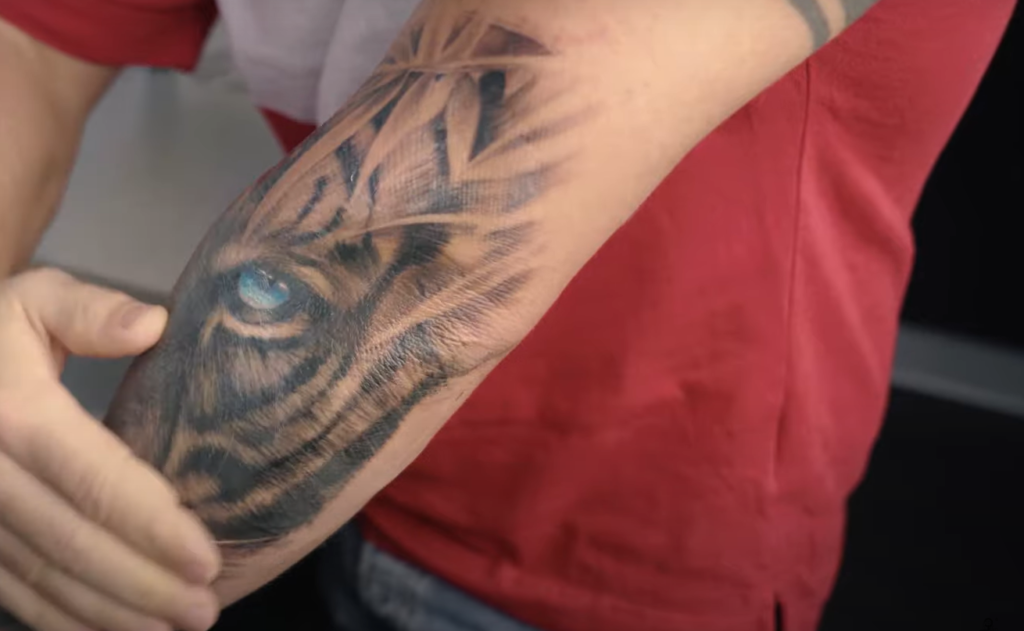
After that, you can slowly start reintroducing water to the tattooed area by showering and swimming. Just be sure to pat the tattoo dry afterwards and apply a layer of sunscreen before heading out into the sun.
What if my tattoo starts peeling?
It’s normal for tattoos to start peeling a few days after you get them. The outer layer of skin will shed away, revealing the deeper layers of skin beneath. To help with the peeling process, you can apply a thin layer of lotion to the tattooed area. Just be sure to use a lotion that’s free of fragrances, dyes, and other harsh chemicals. You should also avoid picking or scratching at the peeling skin, as this can cause the tattoo to fade.
What are some common tattoo aftercare mistakes?
There are a few common mistakes that people make when caring for their new tattoos. One of the most common is skipping out on sunscreen. If you don’t protect your tattoo from the sun, it will start to fade and lose its color over time. Another mistake is not keeping the tattoo clean enough. This can lead to infection and irritation. To avoid these problems, be sure to follow all of the aftercare instructions given to you by your tattoo artist.
How do you sleep with a fresh tattoo?
To ensure your tattoo stays clean and infection-free, you’ll need to take some precautions when sleeping. For the first few nights, it’s best to sleep on your back with a pillow under your tattooed arm or leg. This will help keep the area from coming into contact with anything that could irritate it. You should also avoid wearing tight clothing over the tattooed area, as this can cause friction and irritation. If you have a larger tattoo, you may need to sleep with a bandage over it for the first few nights. Be sure to ask your artist how long you should leave the bandage on for. Once it’s time to remove the bandage, do so carefully and gently wash the area with warm water and soap. After the first few nights, you can sleep however you like, but it’s still important to avoid irritating the tattooed area. Wearing loose clothing and using a light layer of petroleum jelly on the tattoo will help keep it moisturized and protected.
When can I wear clothes over my tattoo?
You can wear clothes over your tattoo as soon as it is healed.
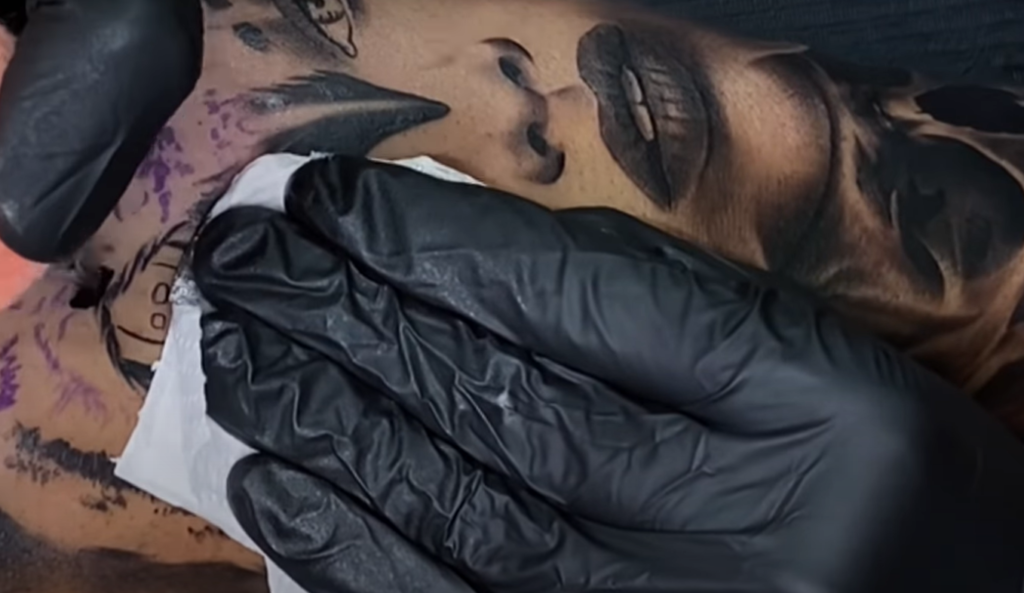
Be sure to wait until the area is completely healed before covering it with clothing, otherwise you risk trapping bacteria and dirt which can lead to infection.
How can I make my tattoo heal faster?
There are a few things you can do to speed up the healing process of your tattoo:
- Apply a thin layer of tattoo aftercare ointment or lotion. Be sure to use a non-scented, natural product like A+D Original Ointment or Aquaphor Healing Ointment.
- Gently clean your tattoo with soap and water two to three times per day. Do not scrub or pick at your tattoo!
- Wear loose, comfortable clothing that won’t irritate your tattoo. Avoid tight clothing, friction, and anything that might stick to your tattoo (like Band-Aids).
- Keep your tattoo out of the sun until it is fully healed.
Useful Video: Professional Tattoo Aftercare Guide (Day-by-Day) | Sorry Mom
Conclusion
So there you have it, everything you need to know about tattoo aftercare! Following these simple steps will ensure that your tattoo heals quickly and properly, and that you’ll be able to enjoy your new ink for years to come. Thanks for reading, and we hope this guide was helpful! If you have any questions or concerns, feel free to reach out to us anytime.
We’re always happy to help!
References:
- https://www.webmd.com/skin-problems-and-treatments/taking-care-of-your-tattoo
- https://sudtana.com/blogs/blog/coconut-oil-the-right-ingredient-for-tattoo-aftercare
- https://www.mayoclinic.org/healthy-lifestyle/adult-health/in-depth/tattoos-and-piercings/art-20045067
- https://www.healthline.com/health/body-modification/showering-with-new-tattoo
- https://playhousetattoos.com/how-to-prepare-for-a-tattoo-appointment/


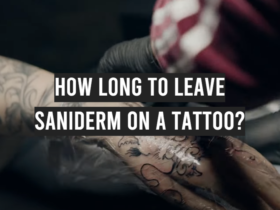


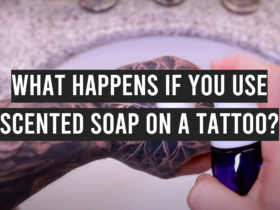
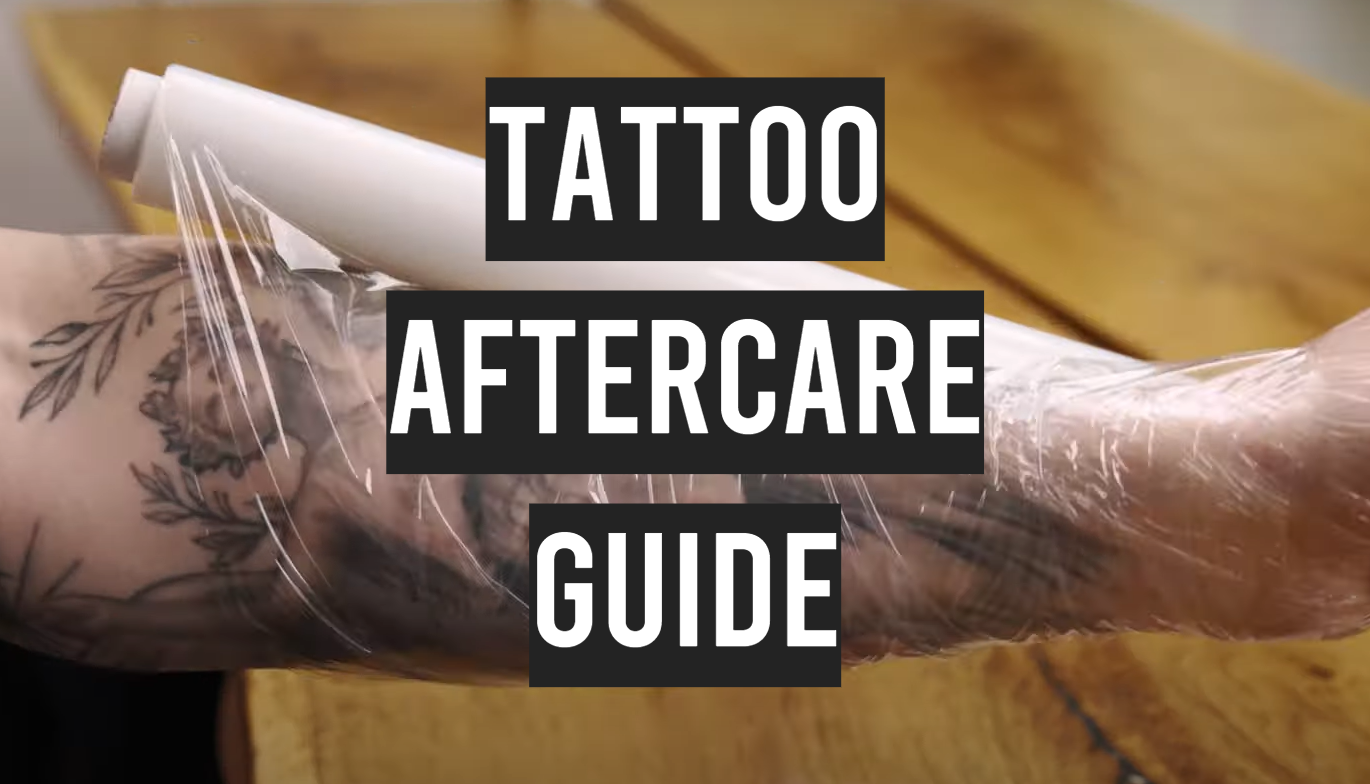

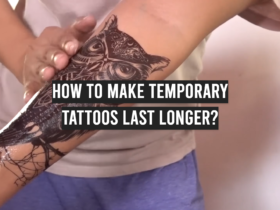

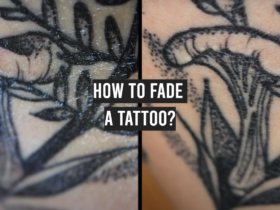
Leave a Review